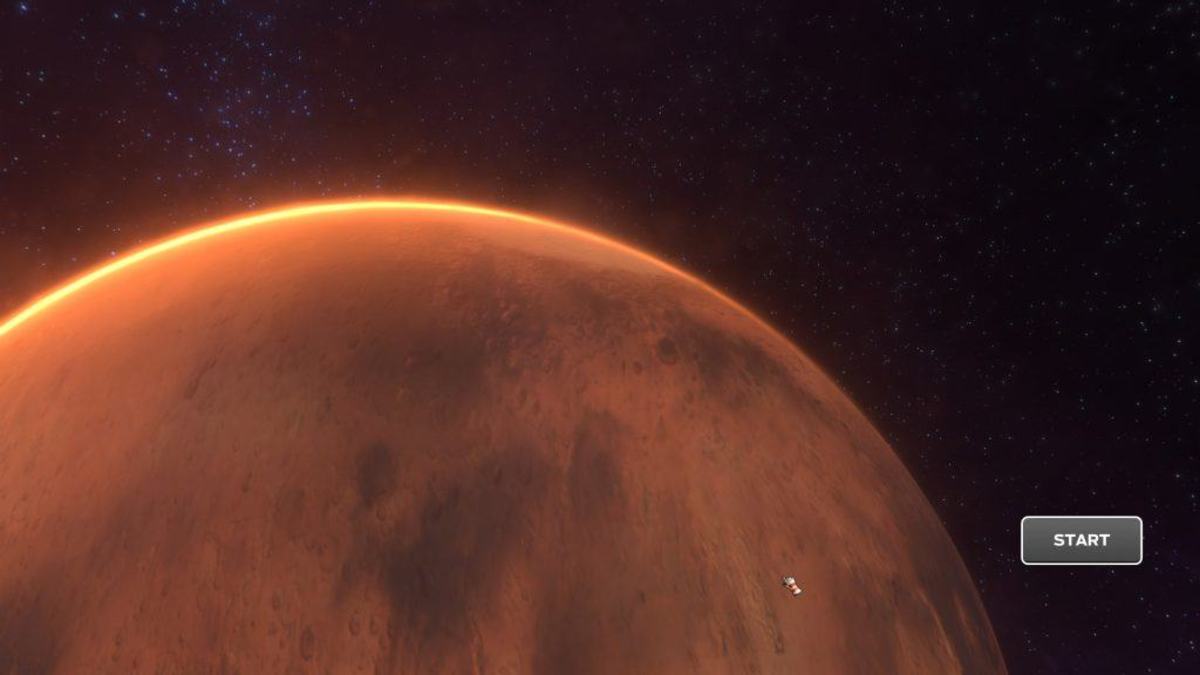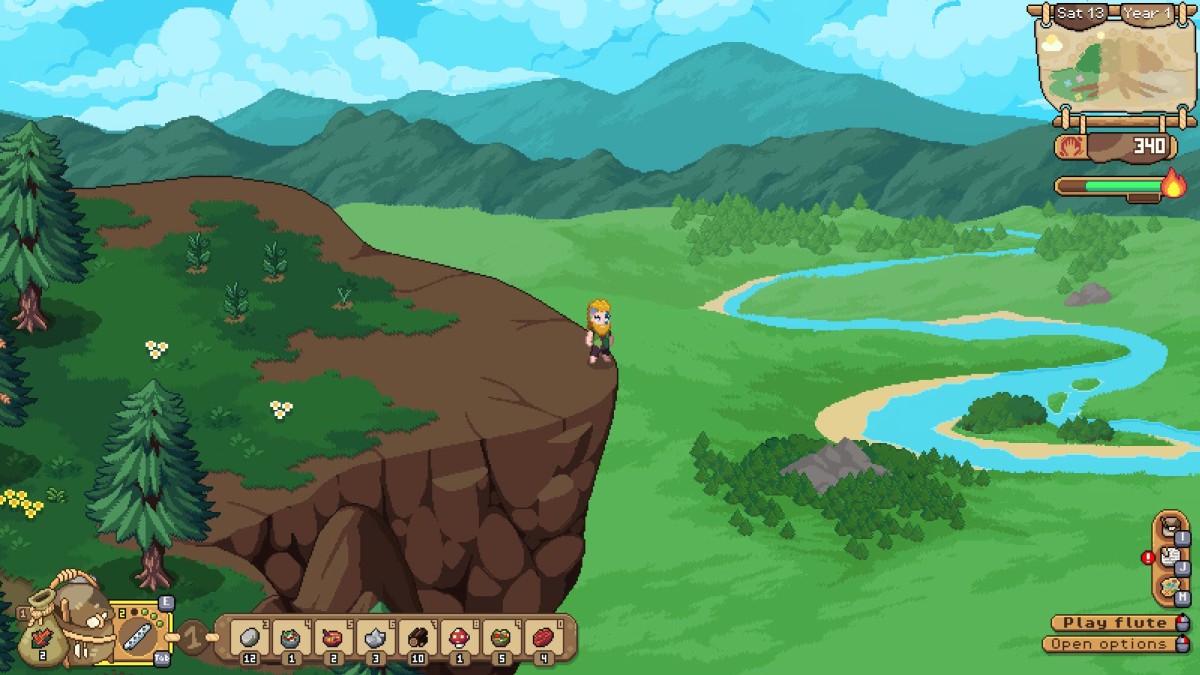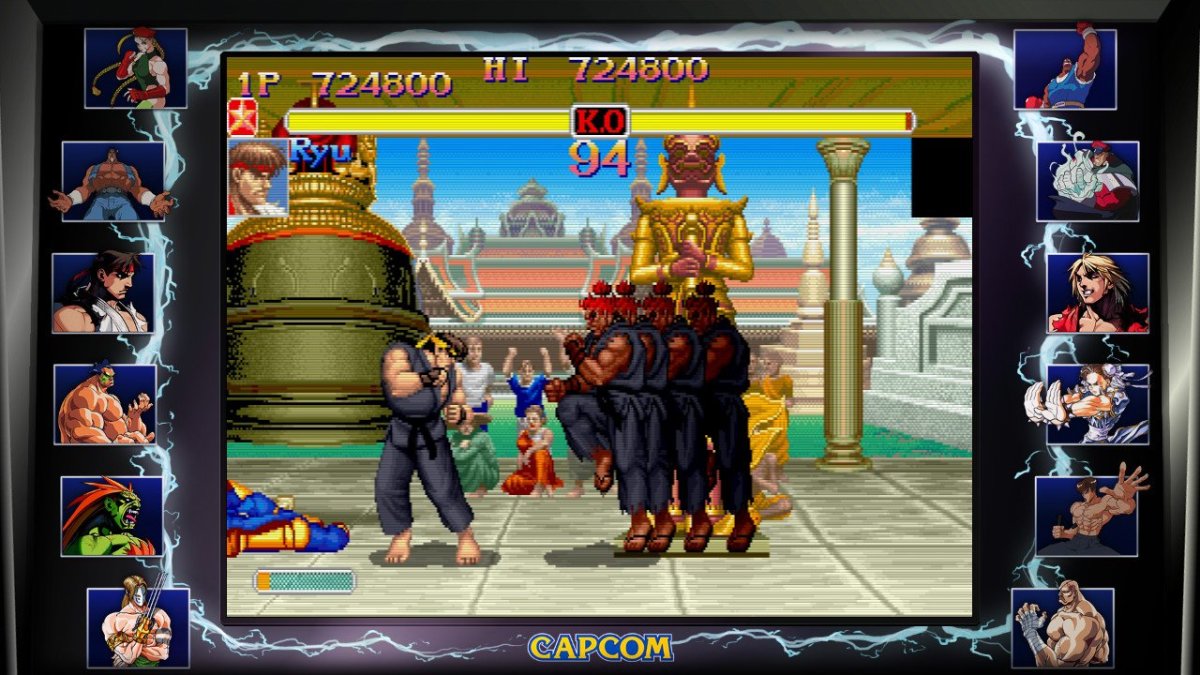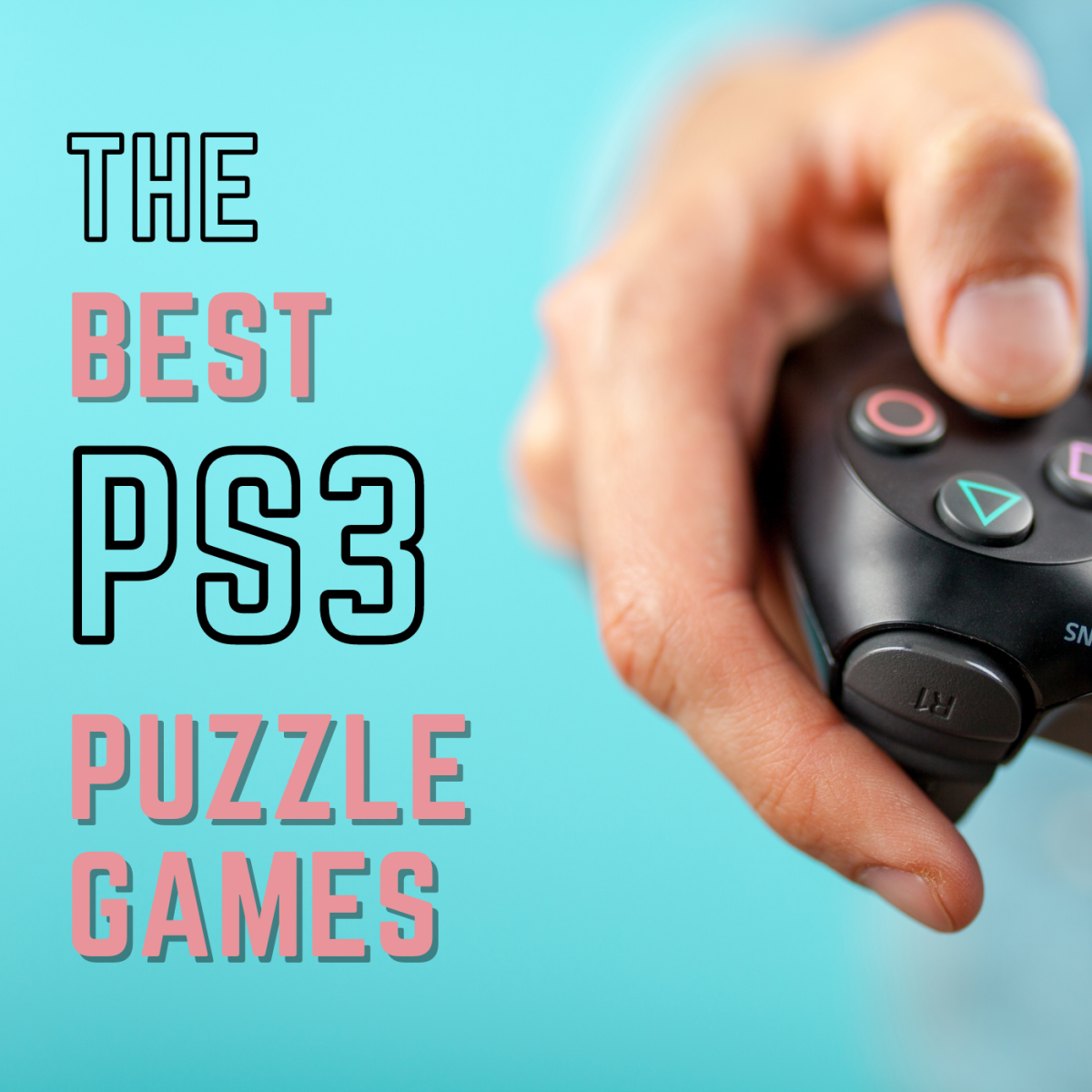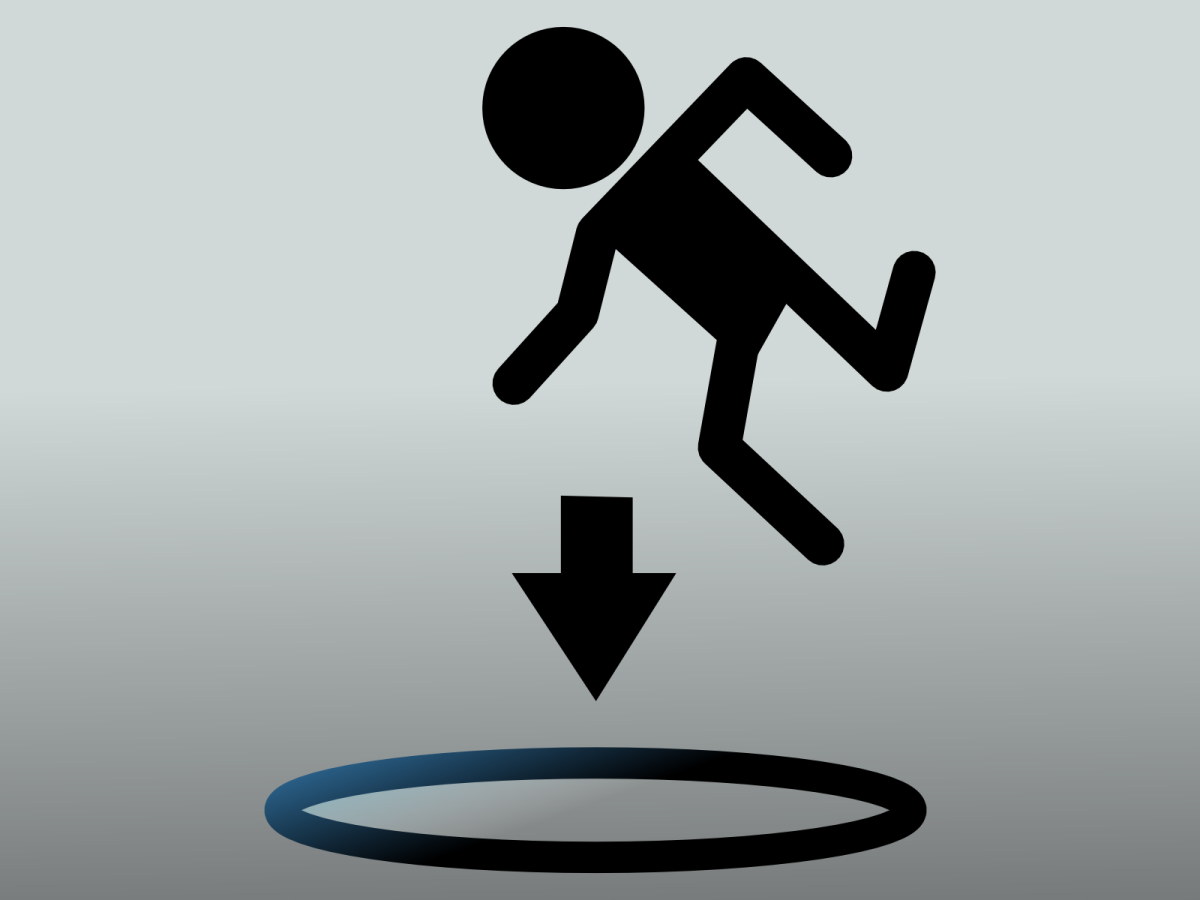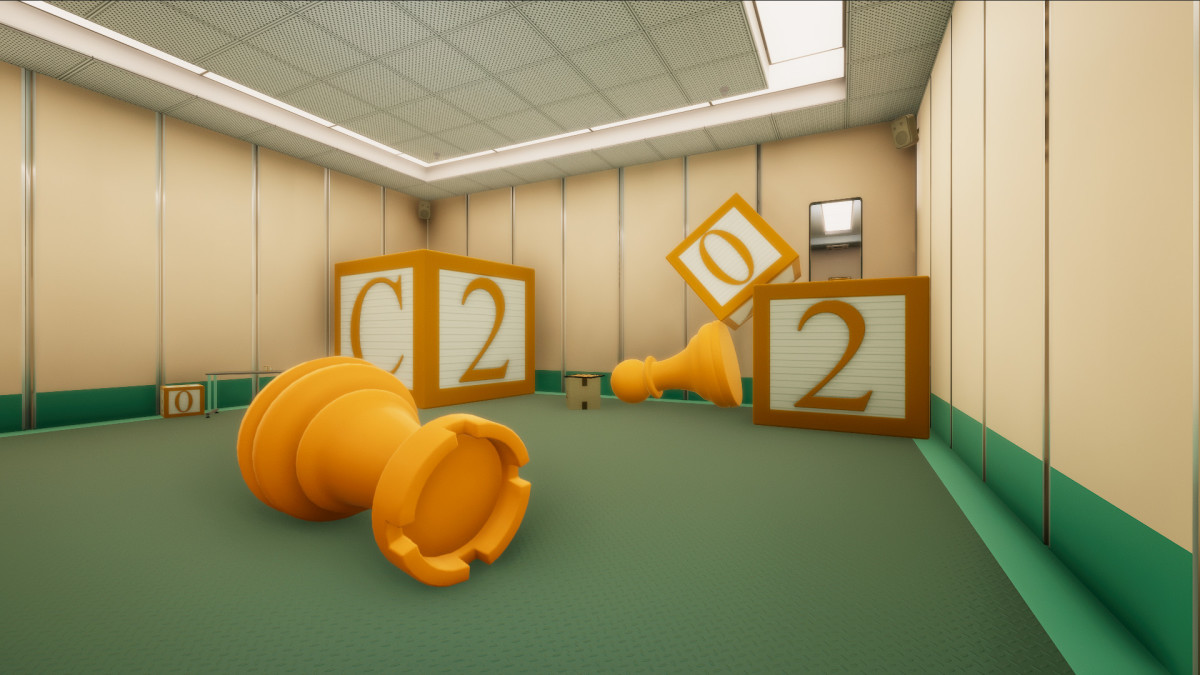Indie Game Review: Braid
Is this game worth my time and money?
Braid is the best 2D puzzle game I have ever played. That includes everything that could reasonably fall under the category "puzzle." I'm not just talking about video games, I mean everything in existence. This journey will push your brain past were it has been evolutionarily programmed to go. When you first pick it up, you will be surprised at how easy it is to learn.
However, beginning to understand the more complex inner-workings of gameplay will abruptly force you to rethink this initial evaluation. This game is extraordinarily hard, but every drop of time invested will repay you in the form of intellectual conquest. Combine that with the fact that Braid is on Steam for a measly $9.99, including a free demo, and I would have to give this one a solid 10/10 for overall value. This score does not come easy, but I would recommend Braid to everyone I ever met ever.
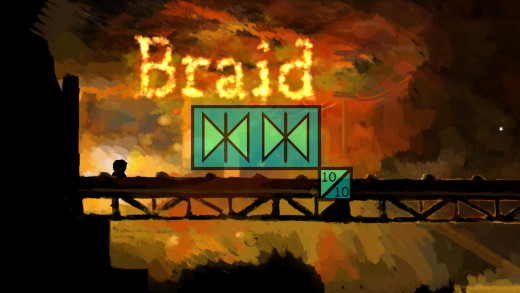
Genre
Braid is a puzzle platformer, but it goes way beyond the call of duty. Jonathan Blow's intimate understanding of physics makes itself abundantly apparent within the first couple stages. At first glance, it looks like any other platforming game. Once you start to play it though, you will soon realize that it takes this genre to a previously unfathomable level.
Gameplay aspects like time-dilation, parallel time dimensions, and other physics manipulations make it almost a crime to lump this game in with a previously mundane genre. Many puzzle games have strived to achieve this level of excellence since Braid launched. We should thank Blow for pushing the boundaries of this variety of game.
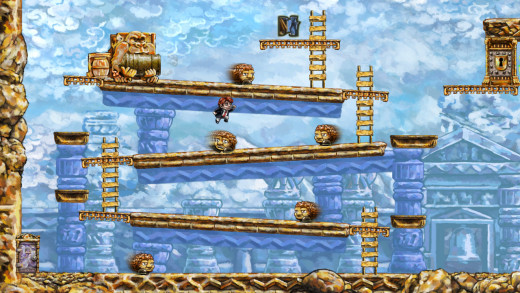
Controls
On the surface, this game plays just like any other 2D platformer. You push right to walk/run, you hit a button to jump. It takes a literally negligible amount of time to learn how to control your new protagonist, Tim. The controls are exceptionally smooth. I experienced no issues with glitching or otherwise controlling the character.
Anyway, that's how the basic controls go, but that's where the similarities end. Soon after beginning the game, you are given a new action button, this one is capable of reversing time, and it is a chief aspect of gameplay, but more on that in the appropriate section.
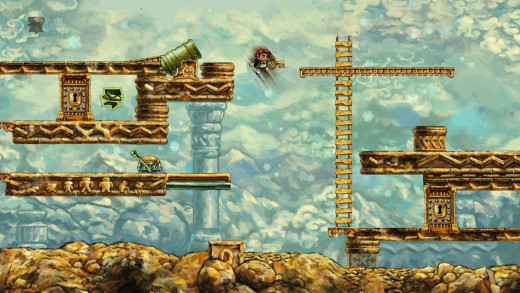
Gameplay
You are kind of just thrown into gameplay. There's no tutorial or anything like that, but you don't really need it. Jon Blow gives you everything you need to know to beat the game through intuitive exploration. What very shortly becomes clear is that you are supposed to be collecting those tantalizing puzzle piece looking things. These pieces are only accessible by completing different perplexing aspects of the level.
There are going to be moving platforms and enemies that stand in your way, but the real hurdle is your own cognitive process. Once you collect a bunch of these puzzle pieces, you realize that you can put them together. The collectibles gained while completing puzzles are yet another puzzle, and a literal one. Its goddamn genius.
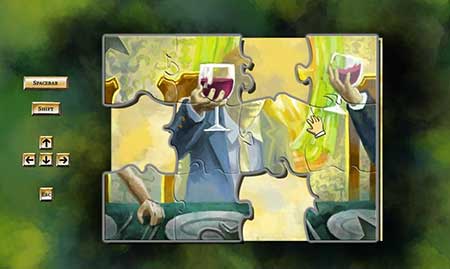
If you die, you can just rewind time. This becomes a much more important mechanic when the game introduces new physical properties and manipulations. These changes to your physical realm become increasingly difficult to rationalize. In one level, time is directly dependent your character's position on the x-axis. This effects everything in the game. If you stand still, so does time. If you walk backwards, time moves backwards. It is awesomely disorienting.
At a certain point, you are introduced to what I can only interpret as a visible parallel time dimension. Any platforms, enemies, or puzzle pieces that exist within this dimension are not subject to any of the temporal manipulations that are occurring in the dimension you are in. These objects exist within the same spatial dimensions as you, evidenced by the fact that you can physically interact with them. Further in the game, you are allowed to record multiple versions of your character in order to work collaboratively with yourself. It is a fantastically psychoactive experience.
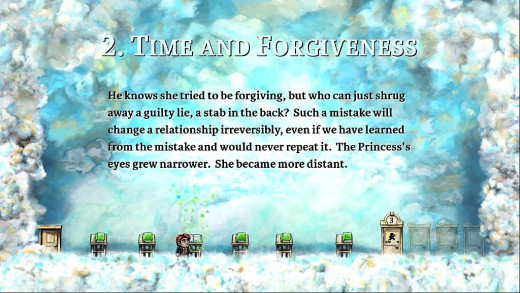
Story
To disclose too much about the storyline of Braid would be a gigantic spoiler, and I'm not going to do that. I will say this, when you finish the game, everything you thought you knew about the story is shattered. Hopefully this isn't too much of a divulgence. During the first playthrough, all you really know is that you are in this castle looking thing, and there are doors that lead to fantastic worlds that challenge the ability to augment your thinking. There are references to a princess, you are apparently trying to reach her. She is, predictably, typically in another castle.
There's no real incentive to complete these puzzles other than your own intellectual drive, and some ambiguous text on these stone tablets about the princess and some haunting subjectively idealistic philosophy. Everyone seems to interpret these passages differently, which might be Blow's goal. It might be that there is a definitive interpretation and he just wanted to be playfully esoteric. Making things weirder, there is this underlying format of unwavering rationalism and calculation in the actual mechanics of the game. Perhaps he is juxtaposing these two realms, the true answer is beyond me, and he's not saying.
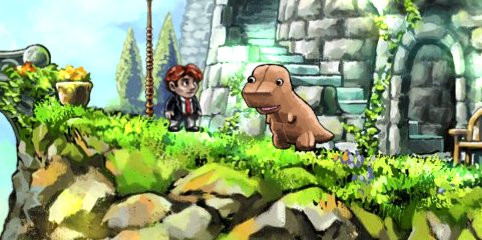
Replayability
As I previously alluded, when you replay the game, and I suggest you do at least once, you will understand a shitload more about what is actually happening. You don't have to clear your save file and reset everything, all of the levels are repayable at any time. Just run through them again from beginning to end. The only bummer is that, in all likelihood, you will remember how to solve a good portion of the puzzles. The upside is that you can skip most of the regions that you already solved, since the puzzle piece will be in your inventory and not on the level.
You'll still have plenty of challenging puzzling to do since you probably missed a decent portion of them in the first playthrough. You will probably be able to find previously unfathomable solutions because of things you learned later in the game. This will give you something meaningful to strive for when you play through the levels again. There are many other hidden aspects of the game that you only realize after dedicating a considerable amount of time to the game, but I'm not going to spoil it for you. This makes the game engaging for many hours to come. Seriously, 10/10.

